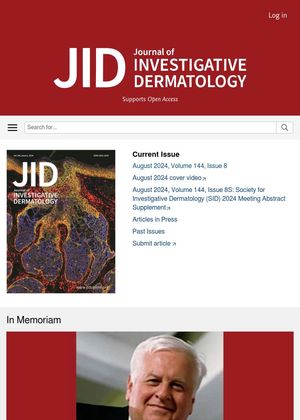Single-Cell Transcriptomics Reveals Distinct Molecular Programs in Folliculotropic Mycosis Fungoides

TLDR Folliculotropic mycosis fungoides has unique molecular features and cell interactions that could guide targeted therapy.
The study utilized single-cell RNA sequencing on skin samples from 5 FMF, 3 LCT, 1 MF, and 4 healthy individuals to explore the molecular programs in folliculotropic mycosis fungoides (FMF), a rare variant of cutaneous T-cell lymphoma (CTCL). The research revealed significant differences in T cell expansion across disease stages, with CD8 T cells increasing up to 7.2-fold in FMF compared to MF. Malignant T cells showed high inter-patient heterogeneity, and LCT had more malignant CD4+ T cells than FMF. Cell-cell adhesion genes, particularly LGALS3, were highly upregulated in FMF. Inflammatory interactions between malignant CD4+ T cells and follicular keratinocytes were stronger in FMF than in LCT, highlighting distinct cellular and transcriptomic landscapes among MF subtypes and suggesting potential for targeted therapy.




